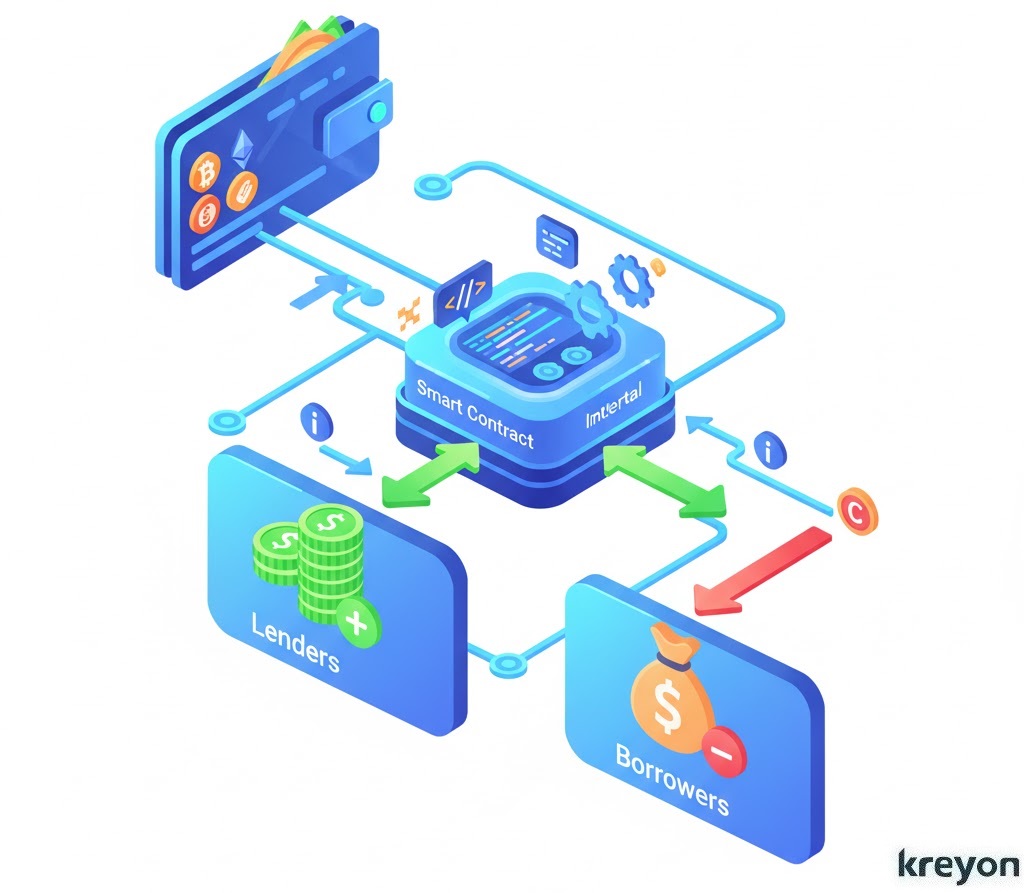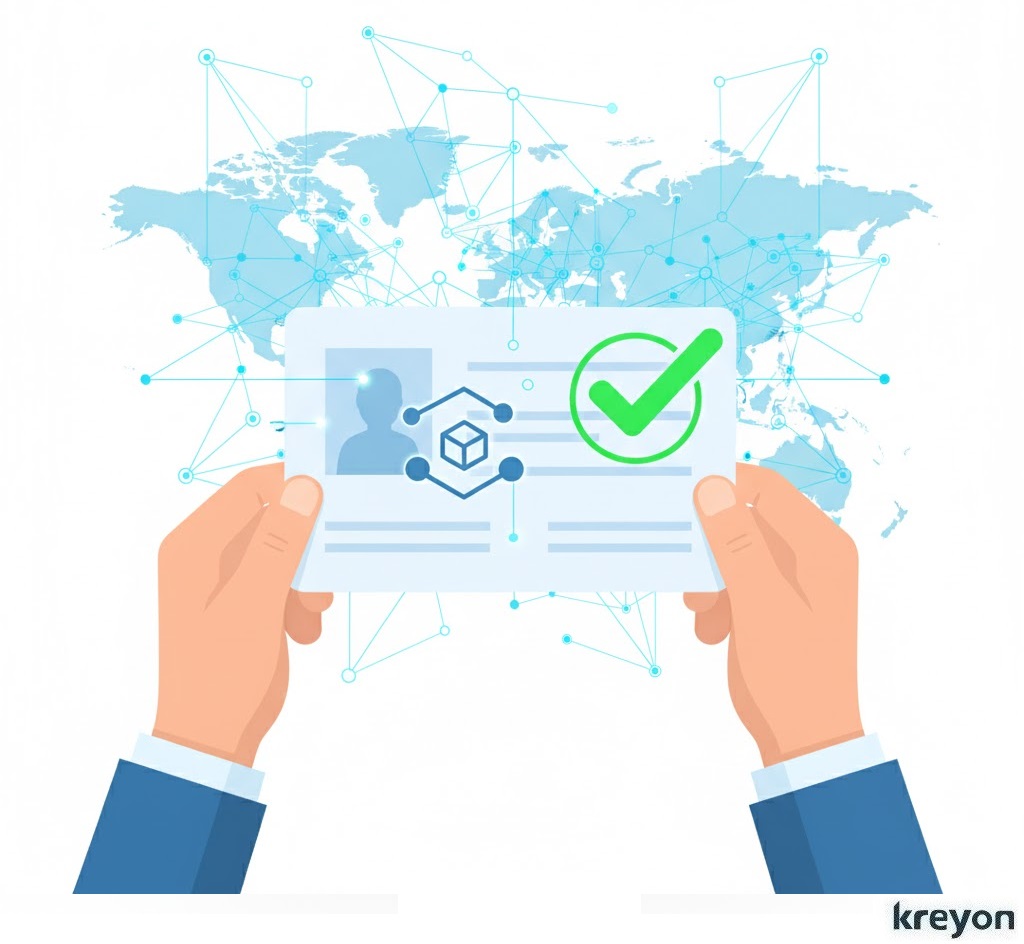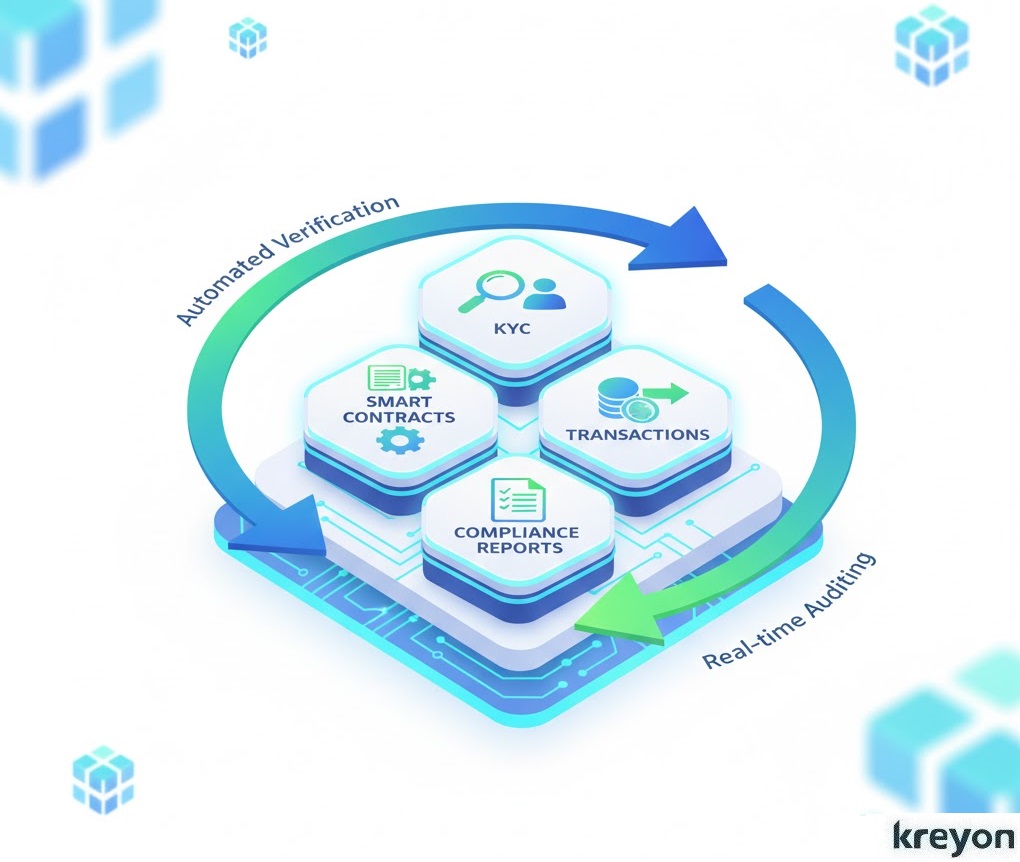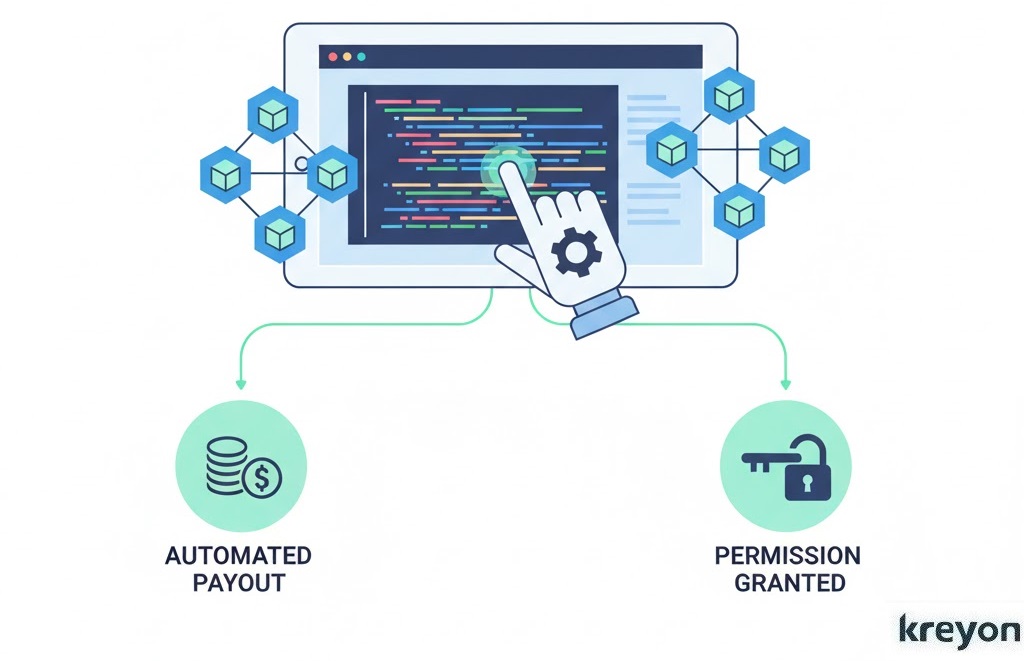End-to-End Blockchain Automation in Fintech: From KYC to Smart Contracts

In today’s cutthroat financial landscape, innovation isn’t optional, it’s the price of entry. For fintechs aiming not just to compete but to dominate, surface-level features like digital wallets and polished UIs won’t cut it.
The real power play happens behind the curtain, where operations are automated, fortified, and built to scale through two transformative technologies: blockchain and automation.
This powerful combo is no longer experimental. It’s being quietly adopted across the fintech ecosystem—from onboarding and compliance to smart contracts and real-time settlements. Blockchain automation in fintech is becoming the gold standard for speed, transparency, and trust.
So, how does this work in practice? Let’s walk through how fintechs are using blockchain automation across the entire customer journey—from the very first identity check to complex financial transactions running entirely on autopilot.
Stage 1: Streamlining KYC with Blockchain Automation
The Problem
Traditional KYC (Know Your Customer) processes are slow, expensive, and often frustrating for users. For fintechs, it’s a balancing act between staying compliant and offering a smooth onboarding experience.
The Solution
With blockchain automation, the KYC process becomes faster, more secure, and reusable across platforms.
Imagine this: instead of asking users to upload documents every time they sign up, verified KYC data can be stored (or referenced) on a secure blockchain network. A smart contract checks the credentials, verifies their source, and gives instant clearance, no human required.
Even better, privacy-focused technologies like zero-knowledge proofs allow users to prove their identity without revealing sensitive data—an enormous win for both security and compliance.
- Business Impact:
- Cut KYC onboarding time from days to minutes
- Reduce fraud and human error
- Improve user experience without sacrificing compliance
Stage 2: Automating Risk and Credit Decisions

The Challenge
Traditional models depend heavily on outdated credit scoring systems, endless forms, and manual approvals. Not only is this slow, but it also excludes millions of users from financial access.
The Blockchain Way
Smart contracts can analyze on-chain financial behavior—like wallet activity, past repayments, and collateral balances—and issue credit decisions automatically.
Some platforms even use DeFi-native credit scoring, enabling micro-loans and dynamic credit lines with no middleman.
- Business Impact:
- Expand lending using real-time, data-driven assessments
- Lower default risk with transparent on-chain behavior
- Offer inclusive financial products globally
Stage 3: Automating Transactions and Settlements
The Traditional Way
You process a payment, then wait for clearing, then reconciliation. Multiply that by thousands of transactions and it quickly becomes inefficient—not to mention expensive.
The Blockchain Way
With smart contracts, transactions are automated, instant, and final. Once conditions are met (e.g., invoice approved, wallet connected, funds available), the contract executes the payment on-chain—zero manual intervention.
- Business Impact:
- Instant settlements = improved cash flow
- Fewer intermediaries = lower costs
- Transparent records = easier audits
Stage 4: Smart Contracts as the Engine of Fintech Automation

If blockchain is the infrastructure, smart contracts are the automation layer that brings it to life. These self-executing digital agreements run exactly as coded and only trigger when conditions are met.
Real Fintech Applications:
- Insurance payouts based on external data (e.g., flight delays)
- Escrow agreements for large transactions
- Revenue distribution and royalty payments
- DeFi lending protocols issuing loans automatically
- Business Impact:
- Operational efficiency at scale
- Removes human error and delays
- Builds customer trust through transparency
Stage 5: Real-Time Compliance Built into Your Code
Manual regulatory reporting, scattered audit logs, and delayed fraud detection are pain points for every fintech founder.
Blockchain automation lets you embed compliance into your workflows, turning manual efforts into real-time systems.
Smart Contracts Can:
- Enforce AML thresholds
- Trigger real-time alerts for suspicious activity
- Generate immutable audit logs automatically
- Business Impact:
- Stay ahead of evolving regulations
- Simplify audits and reduce legal exposure
- Boost investor and partner confidence
Why Blockchain Automation in Fintech Is a Growth Strategy

Here’s what makes blockchain automation a lucrative proposition for fintech companies:
| Benefit | How It Helps Fintechs |
|---|---|
| Speed | Real-time onboarding, payments, and compliance |
| Cost Efficiency | Fewer intermediaries, reduced operational costs |
| Security | Immutable records and encrypted user data |
| Transparency | Fully traceable transactions and audit trails |
| Scalability | Automated systems grow with your business |
Blockchain Automation in Action
- Circle: Powers billions in daily transactions with blockchain settlement and automated compliance.
- Aave Arc: Offers DeFi lending for institutions with built-in KYC and smart contract automation.
- Compound: Provides automated lending and borrowing without banks using blockchain-native tools.
Final Thoughts: Future-Proofing Fintech with Blockchain
Legacy systems, outdated data flows, and manual operations are holding fintech companies back. But it doesn’t have to be that way.
End-to-end blockchain automation is your chance to build smarter, leaner, and more trustworthy operations from day one. From KYC to compliance to transaction processing, automation puts your fintech on the fast track to growth—and keeps it there.
Kreyon Systems can help you build secure, compliant, and scalable fintech solutions powered by blockchain, automation, and AI. If you have any queries, please contact us.
